Welfare reform: Westminster will not provide extra money says minister
- Published
Secretary of State Theresa Villiers said it would be unfair to fund a more expensive welfare system in Northern Ireland
Martin McGuinness has said £200m would solve problems over welfare reform but the Northern Ireland Secretary has said there will be no extra cash.
Sinn Féin withdrew its support for a reform bill on Monday after accusing the DUP of reneging on commitments made in the Stormont House Agreement.
Mr McGuinness told RTÉ radio an extra £200m would close the gap.
Ms Villiers said a more expensive system in Northern Ireland than in the rest of the UK would be unfair.
Sinn Féin said it had signed up to the Stormont House Agreement on the understanding that welfare claimants would be fully protected under the welfare changes by a fund that would help offset any losses to benefits.
The secretary of state said that if the welfare reform issue was not resolved, it would throw into question the other elements of the Stormont House Agreement, including a planned voluntary exit scheme for the public sector.
Ms Villiers also said a final decision had not been made about whether to press ahead with the bill transferring power over corporation tax to Northern Ireland.
The bill was expected to clear its final stage on St Patrick's Day.
Mr McGuinness told RTÉ radio it became clear recently that the sums agreed did not offer the full protection his party required.
He said that a £125m "supplementary payment fund" would not offer full protection for disabled claimants in particular.
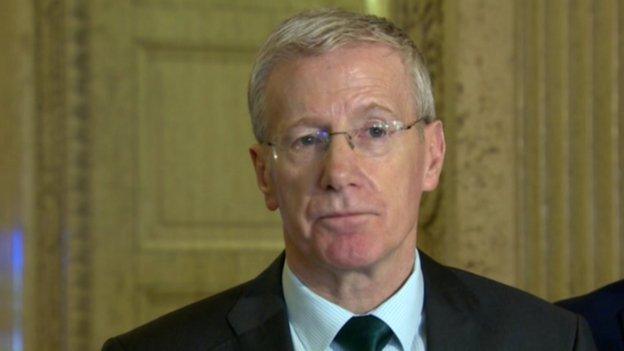
Gregory Campbell said Sinn Féin's call for more money for welfare was "simply not a runner"
Mr McGuinness said during the Stormont House talks and in their aftermath the DUP had not told him that the £125m would not be enough.
'Not a runner'
On Tuesday, the DUP's Gregory Campbell said Sinn Féin's call for more money for welfare was "simply not a runner".
"It's considerably more than £200m and remember all the figures were in the agreement that he [Martin McGuinness] and they signed up to," he said.
"Everyone else seems to be clear on what the ramifications were of the deal, they seem to have only belatedly discovered the extent of some shortfall.
"Where would we get that money from? What services would have to suffer as a result of trying to find that money. It's simply not a runner."
Social Development Minister Mervyn Storey said the under the Stormont Castle Agreement, £124m was agreed for the supplementary benefit fund over a period of six years.
He said it would cost £411m over six years to cover what Sinn Féin wants.
'Resolution mood'
Mr McGuinness also accused the DUP of withholding Department of Social Development (DSD) documents that would have given a clearer picture.
Mr McGuinness said the DSD figures had only changed in "recent days".
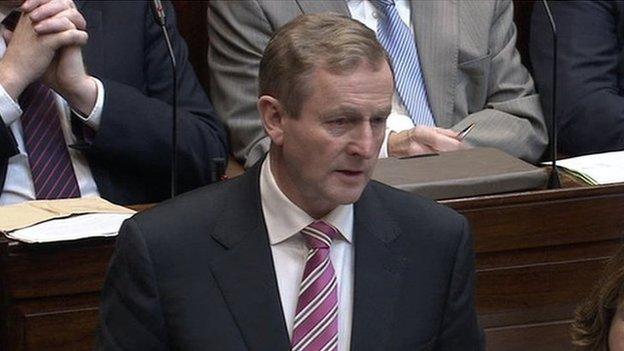
Mr Kenny said Mr McGuinness had to go back and explain why the figures had drifted
He said DSD had indicated that the degree of protection required by Sinn Féin would probably need in the region of "over £200m" on top of the existing £125m to resolve the problem.
The deputy first minister added that he was in "resolution mood" and would endeavour to solve the problem.
Speaking in the Dáil (Irish parliament) on Tuesday afternoon, Taoiseach (Irish prime minister) Enda Kenny asked why, when an agreement had been signed off, Sinn Féin had now decided to withdraw its support.
Mr Kenny said Mr McGuinness had to go back and explain why the figures had drifted.
Sinn Féin's decision to suddenly withdraw its support has thrown the Northern Ireland Assembly into crisis.
DUP leader Peter Robinson said that was "dishonourable and ham-fisted".
Welfare reform was the issue that threatened the future of power-sharing at Stormont last year.
The five main parties reached broad agreement on 23 December on a number of key issues, including welfare.
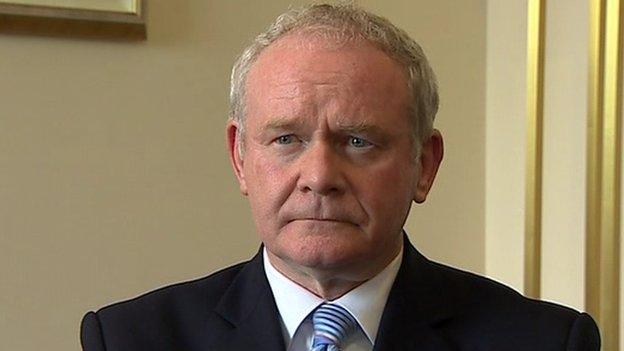
Martin McGuinness accused the DUP of reneging on its commitments on welfare reform
It followed 12 weeks of talks involving the Northern Ireland parties and the British and Irish governments.
Support
Sinn Féin lodged a petition of concern on Monday to stop the bill's passage in the assembly.
If a petition of concern is presented to the assembly speaker any vote taken by MLAs will have to have support from both unionist and nationalists.
A proposed legislation or motions will then only pass if supported by a weighted majority (60%) of members voting, including at least 40% of each of the nationalist and unionist designations present and voting.
Effectively this means that, provided enough MLAs from a given community agree, that community can exercise a veto over the assembly's decisions.
Sinn Féin and the SDLP had opposed welfare reform plans agreed at Westminster, but it had been thought that the issue had been resolved by the Stormont House Agreement.
In agreeing to move forward on welfare reform, the parties in Northern Ireland agreed to introduce a number of new schemes to ensure additional financial support was directed to those set to lose out by changes to the benefits system.
- Published9 March 2015
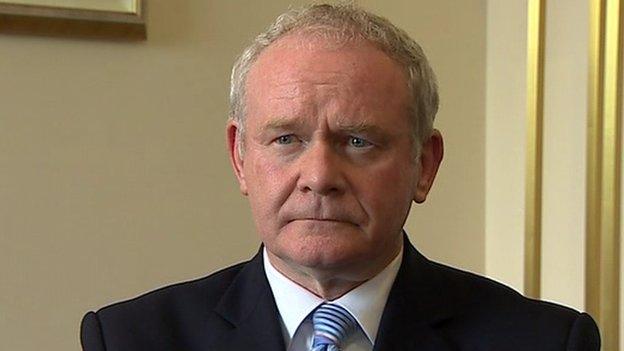
- Published9 March 2015
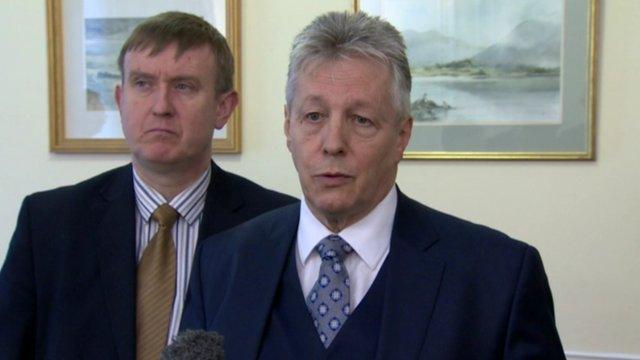
- Published9 March 2015
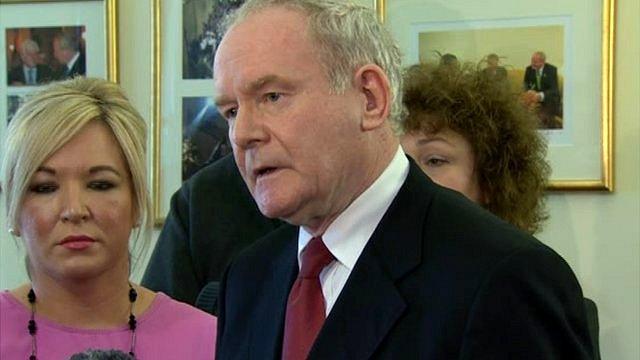
- Published9 March 2015
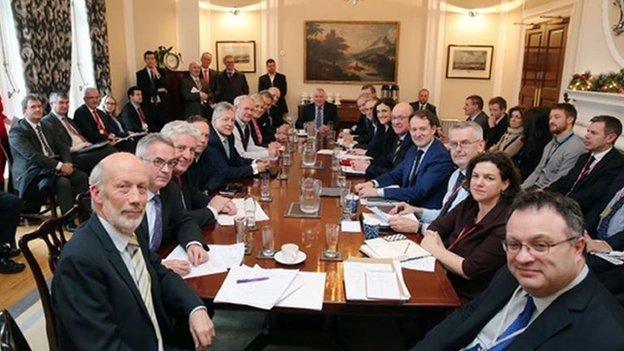
- Published9 March 2015
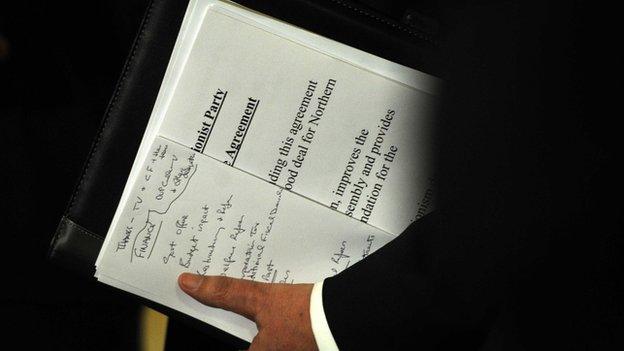
- Published23 December 2014

- Published19 December 2014
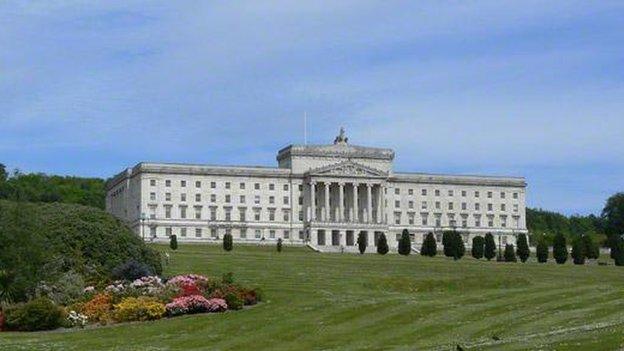
- Published12 December 2014
